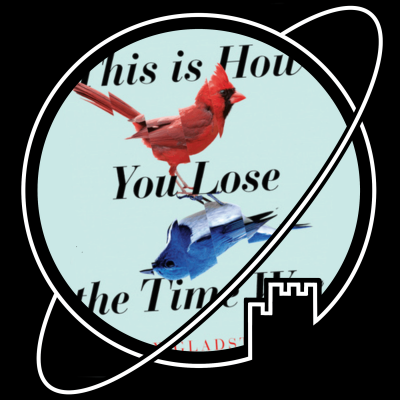- Book written by Amal El-Mohtar and Max Gladstone
- Published in 2019
- Stand-alone
Red and Blue are agents fighting on opposite sides of a time war. When Red finds a letter from Blue that is addressed to her, she knows that reading it could be dangerous: even if it isn’t a trap set by Blue, her own side could view reading the letter as treason. She does read it however, and the letter starts off a secret correspondence between the two women. Writing to each other from the different strands of time in which they are fighting their battles, they start to question what winning the war would really mean to them.

![]()
This is quite an elegant little novella, putting a science-fiction spin on the classic story of Romeo and Juliet. When it comes to worldbuilding it relies mostly on creating atmosphere and giving the reader some hints as to the underlying mechanisms of how the time war is being fought out, but many things are left up to the imagination of the reader. The two main protagonists travel frequently to different times and places, but their activities in these places are never the main focus of the narrative. Instead, these locations form the backdrop against which we see Red and Blue’s relationship develop. Nevertheless, I found the setting very interesting and creative, and I did not mind the lack of technical details and explanations.
What I enjoyed most about the book was the lyrical language and the descriptions of the ways in which Red and Blue manage to write to each other (they almost never write their letters on paper, but find a different way each time to get their messages to reach each other in secret). Both of them are likable enough as characters, and I did care what happened to them. However, on the whole I found I did not connect to them as deeply as I might have liked to and expected, considering that this is mainly a character-driven narrative.
I listened to the audiobook performed by Emily Woo Zeller and Cynthia Farrell, both of whom did a very good job voicing the two protagonists. But because this book switches narrators and settings so often, I regularly found I had missed out on something important if I got distracted even for just a little bit. I think if I had read the book on paper I would have been better able to appreciate some of its smaller details and subtleties.





